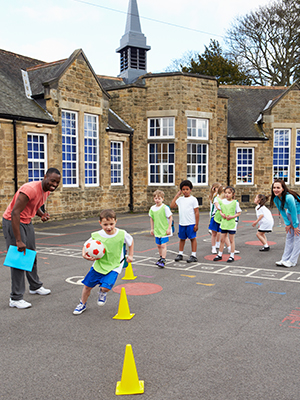Five Essential Reasons to Vaccinate Your Children
As a parent, you want what's best for your child. Vaccines can help your little one grow up healthy and happy, protecting them from many major diseases as their immune system develops.
"Vaccination has become a hot topic, with parents questioning their safety and value," said Tanya Iannuzzi, DO, a pediatrician with Rowan Medicine Pediatrics, an affiliate of Virtua Medical Group. "That's why we work with parents for the health of all children. We believe strongly in the power of vaccines and want parents to feel comfortable and supported in the plan of care."
Here are five reasons you should vaccinate your children:
- You'll protect them from preventable diseases.
"Because of vaccination, we have been able to reduce, and in some cases eradicate, many diseases that were once common in childhood, including diphtheria, tetanus, pertussis, measles, mumps, rubella and chickenpox," said Dr. Iannuzzi. "These immunizations give children the best chance to avoid these serious conditions that can have devastating consequences."
Annual flu shots are recommended between September and April for all children over six months. In 2024-2025, flu severity for all age groups was at its highest since 2017-2018, with 37 million illnesses and 21,000 deaths. - You'll keep your family and community safe.
Maybe you know someone with a weak immune system because of cancer treatments. Or your sister just had a baby who's too young to be fully vaccinated. Getting your child vaccinated reduces the chance that these people will be exposed to diseases. When most people receive all their immunizations, it creates "herd immunity" that helps everyone stay healthier.
"As the number of vaccinated children and individuals goes down, that increases holes in the herd immunity, which puts all at risk," said Dr. Iannuzzi. - You're preparing them for childcare services and schools.
New Jersey state law requires a minimum number of vaccinations before your child can be admitted to a preschool or childcare facility. Most likely, your child will receive the measles, mumps and rubella shot when they're 12 to 15 months old, then get a booster around age four, before starting school.
"Vaccines play a crucial role in safeguarding a child's health and the health of those around them," said Dr. Iannuzzi, who is a clinical assistant professor at the Virtua Health College of Medicine and Life Sciences. "As children play at day care or school, they interact closely with peers. Vaccines ensure they're protected from illnesses that can spread in such environments." - You won't put them at risk for autism.
It's important to know that extensive research has shown no link between vaccines and autism. Vaccines are designed to protect your child from preventable diseases. - You'll help keep them safe.
Thanks to vaccines, many parents have never witnessed the devastating effects of diseases like polio or whooping cough. But that doesn't mean serious diseases no longer exist. Continuing to vaccinate children following the recommended schedule is the only way to help keep these illnesses away.
"We can assure you that these vaccines are thoroughly tested for safety and effectiveness before they're recommended for children," sad Dr. Iannuzzi. "If you have any questions about vaccines, please don't hesitate to ask your pediatrician."
This article originally appeared in the Fall 2025 edition of Heart Talk from Virtua Health. Read the entire edition on the Virtua site.
Make an appointment with Dr. Iannuzzi, or another provider from the Rowan Medicine Pediatrics team.
